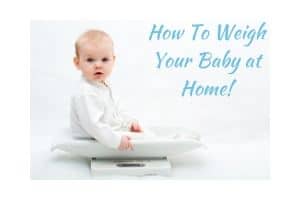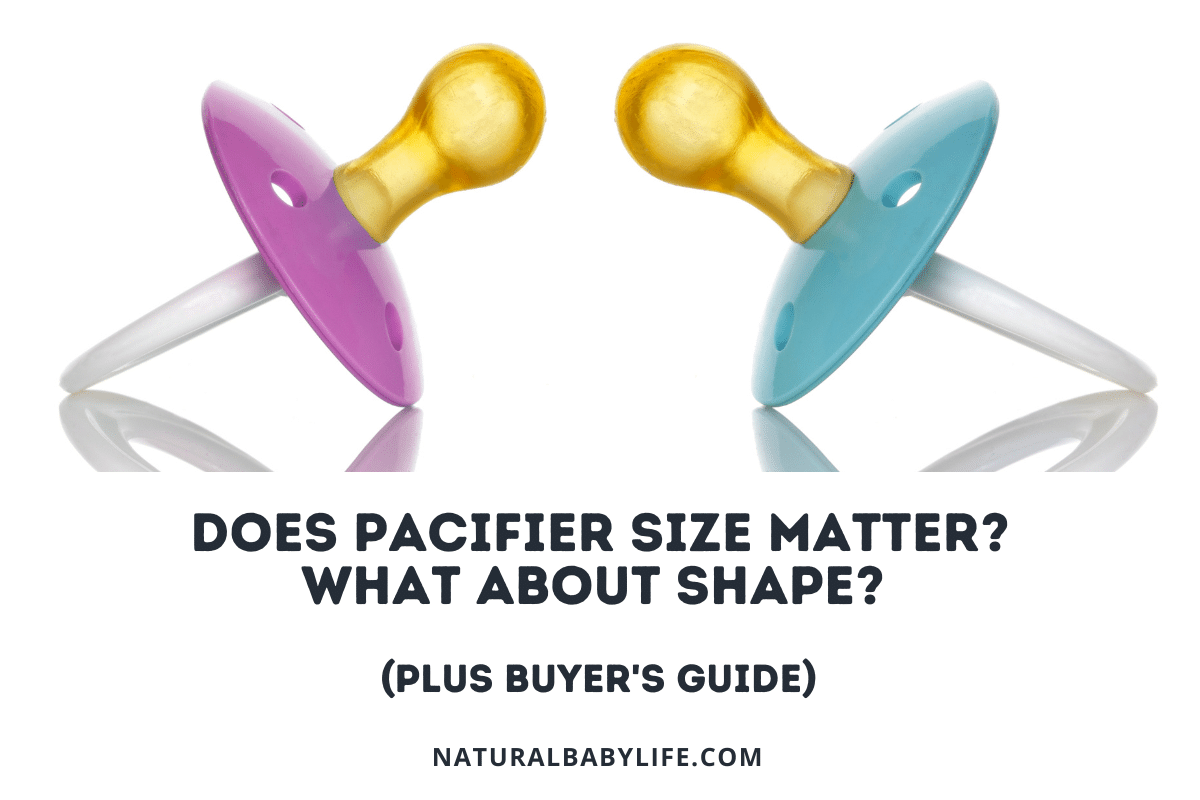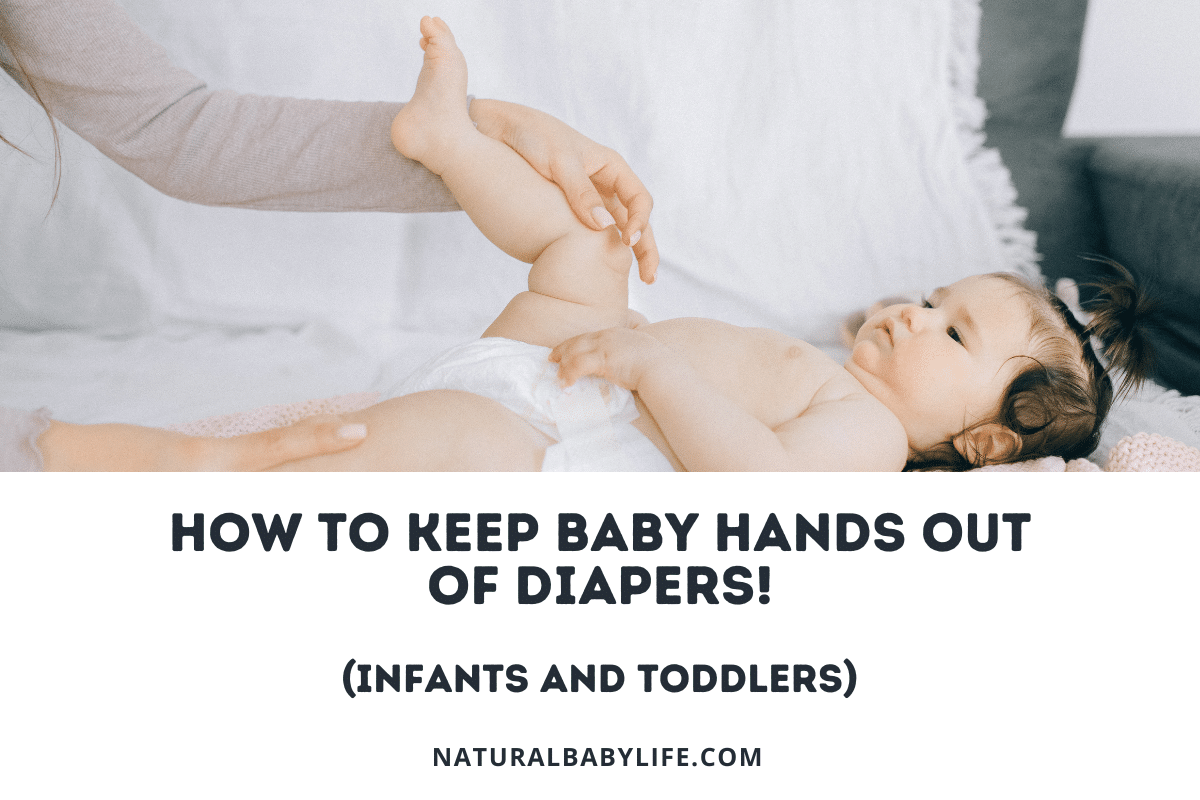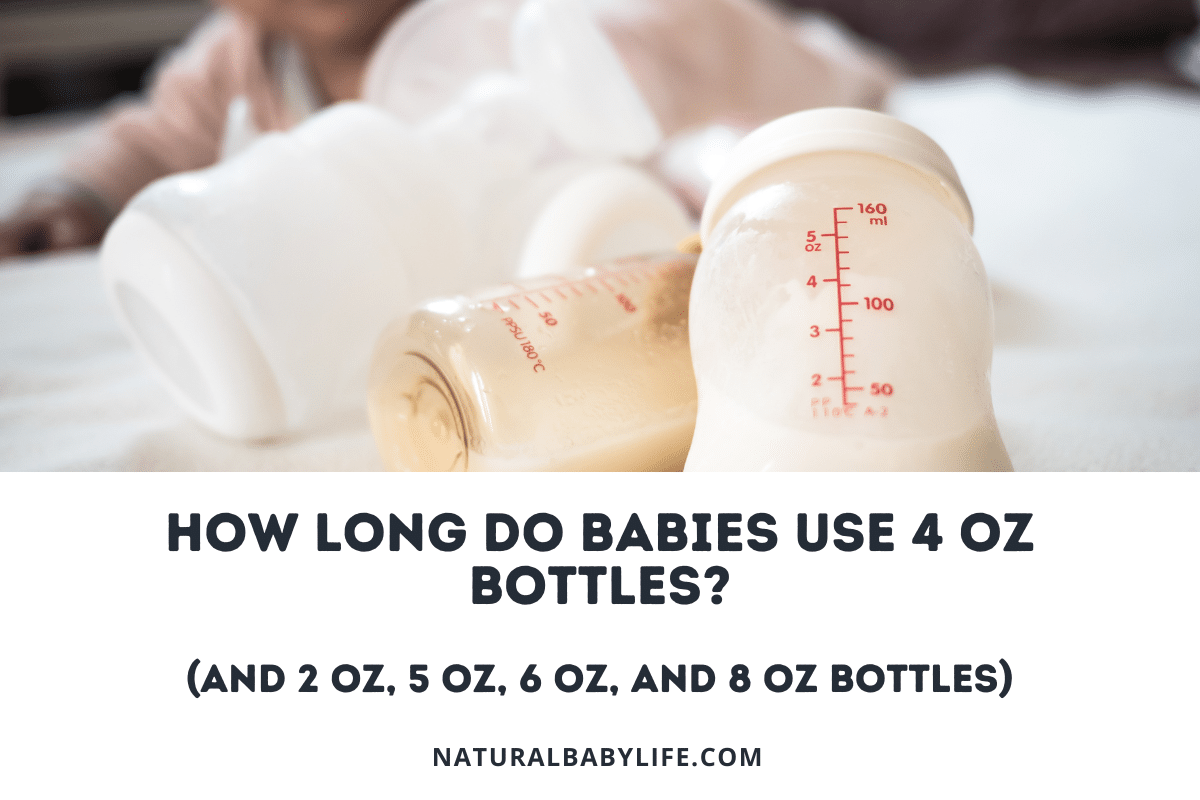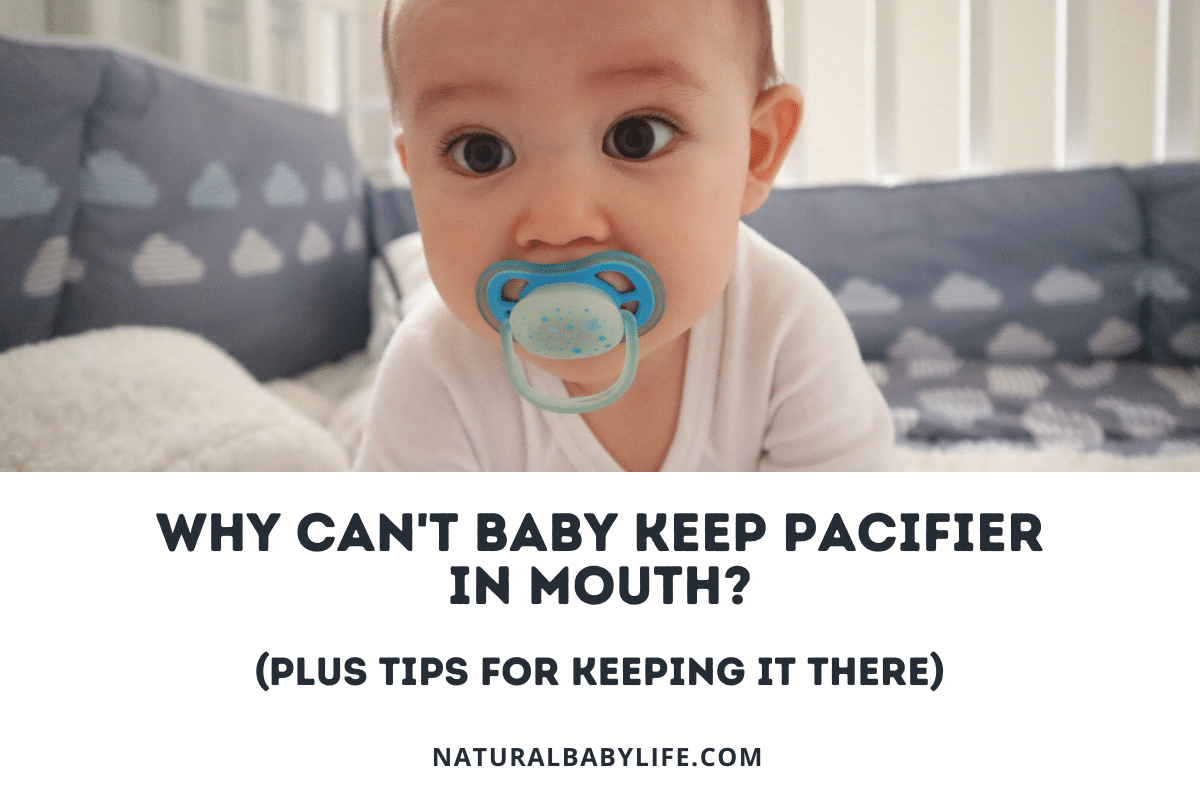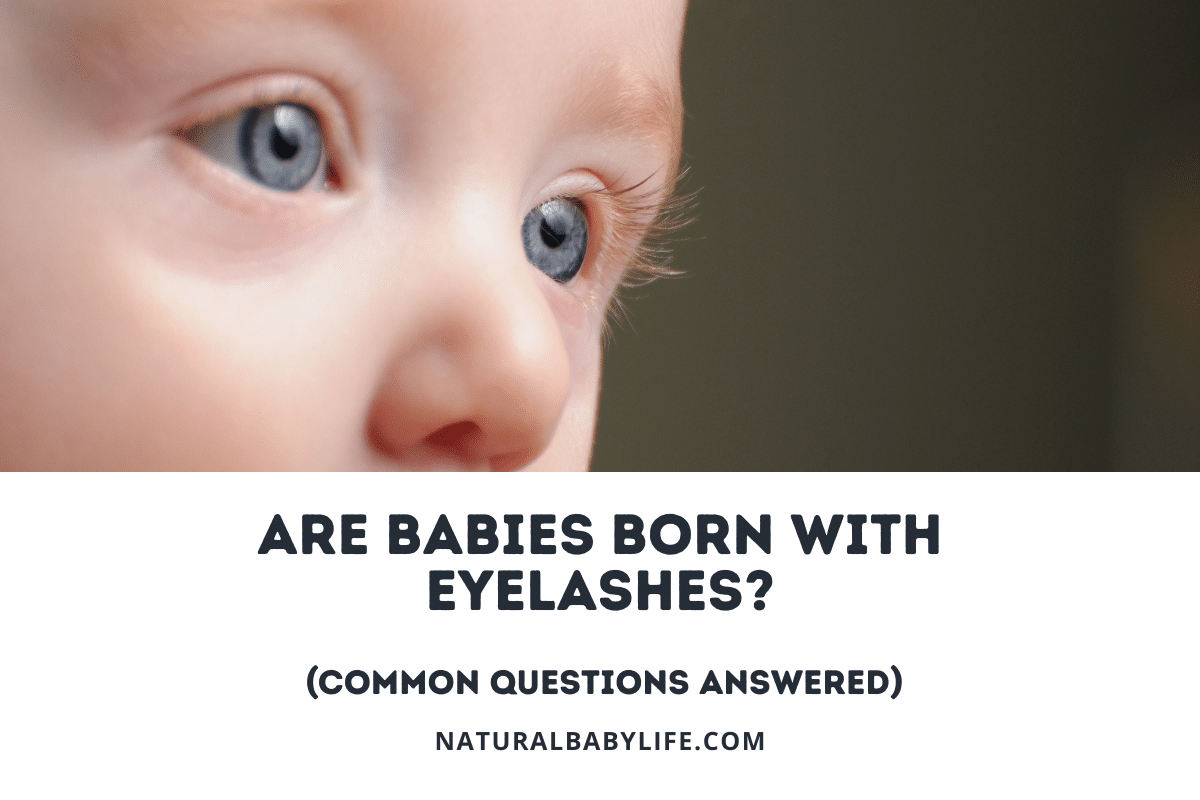There is a lot for parents to think about and worry over during the first years of a baby’s life and, especially in the beginning, it’s important to know how much your baby weighs and whether or not they are growing as they should be. Although the doctor will weigh them at each appointment, you might want to find out the best way to weigh your baby at home.
Babies can be weighed easily at home with a kitchen scale, bathroom scale, or a specialty scale. The kitchen and specialty scales should be tared before taking the weight of your baby. For bathroom scales, you must weigh yourself first and then subtract that amount from the weight of both you and your baby. Some scales will measure down to the ounce, but many will round to the nearest pound or fraction of a pound.
Read on to learn how to weigh your baby at home and to understand the different reasons that you may want to consider weighing your baby at home.
Table of Contents
How to weigh baby at home
There is something about having children that makes strangers all of a sudden become nosy know-it-alls with absolutely no boundaries. This phenomenon begins in pregnancy and as far as I can tell it does not end until your children stop going out in public with you altogether. Yet, I find myself feeling a little guilty when a stranger asks me a question that I cannot answer honestly. Especially when a stranger or acquaintance inquires to my baby’s weight, and I have no idea how to answer.
After all, check-ups are only scheduled for every few months, and we all know that babies grow leaps and bounds in their first year of life. So, when someone hits you with a weight question and you know that your baby has not been to a check-up in over a month, then you might be inclined to freeze like a deer in headlights (as I do.)
Parents become very used to the idea that babies are weighed frequently to monitor their growth and development. During pregnancy, weight gain, fundal height, and baby’s heart rate are all solid indicators that the baby is growing normally so we tend to pay attention to weight than we might for other metrics.
Shortly after birth, babies are weighed to determine a birth weight, and their initial weight gain is monitored through the first few weeks and months of a baby’s life. This habit of knowing that your baby is growing can lead to some anxiety as doctors’ appointments become less frequent. Some parents may desire to weigh their babies at home to ward off anxieties about their child’s growth and development.
Additionally, breastfeeding mothers are at a disadvantage regarding statistics for their baby’s breastmilk intake. There is no way for breastfeeding mothers to definitively know how many ounces their baby is eating in each feeding without the use of an accurate scale. In fact, many breastfeeding mothers are advised by lactation consultants to weigh their babies before and after feedings to get a firm understanding of the babies’ feeding habits.
This technique is often called a weighted feed. Further, some breastfeeding mothers may simply desire a firm understanding of their babies feeding health.
There are many methods by which you can weigh your baby at home. You can use a bathroom scale, a kitchen scale, and even purchase a special scale on which to weigh your baby. However, some methods are undoubtedly more effective than others.
How to weigh baby on kitchen scale
If you own a kitchen scale, then you already have an excellent resource for keeping tabs on your baby’s weight at home! If you don’t own a kitchen scale, then you might consider your newborn an excuse for splurging on one. After all, having a kitchen scale is an excellent tool for moms beyond the simple ability to weigh your newborn at home. This particular scale right here is rated for up to 13 pounds, measures down to the ounce, and is affordably priced. It also comes with a handy container that would probably work well for holding your little one!
| Image | Title | Price | Prime | Buy |
|---|---|---|---|---|
Top Top
Top | LEVIN Food Scale, 33lb Capacity Digital Kitchen Scale with 1g/0.05oz Precise Graduation, LCD Display - Easy Clean Stainless Steel and Tempered Glass | PrimeEligible | Buy Now | |
 Top
Top | Nicewell Food Scale, 22lbs Capacity Digital Kitchen Grey Stainless Steel 1g/0.1oz Precise Graduation -Tempered Glass | PrimeEligible | Buy Now |
Product prices and availability are accurate as of the date/time indicated and are subject to change. Any price and availability information displayed on [relevant Amazon Site(s), as applicable] at the time of purchase will apply to the purchase of this product.
Prices pulled from the Amazon Product Advertising API on:To use a kitchen scale at home, place a large bowl or baking sheet on the scale and drape a light sheet over the surface. Once this is situated, you will need to press the tare button to zero the scale. Then, carefully place your newborn on the surface and hope they stay still for a weighing!
The plus side to using a kitchen scale to weigh your newborn is that kitchen scales are extremely accurate down to the ounce. However, a clear disadvantage is that kitchen scales are not designed to weigh babies and therefore you may have some safety concerns regarding weighing your baby on a kitchen scale. Since they are meant to weigh food, they also usually have a relatively low weight limit and the base of the scale might be pretty small.
How to weigh baby on a bathroom scale
Weighing your baby on a bathroom scale is probably one of the most popular methods for weighing your baby at home. I know I’ve done this more than once with each of my children and while I did get an idea of how much they weighed, I felt really silly hopping on and off the scale with my baby in tow.
To weigh your baby on a bathroom scale you should first weigh yourself. Once you have your weight, you can weigh yourself holding the baby. Subtract your weight from the weight of you and the baby and you will have the baby’s weight!
There is some speculation about the accuracy of using a bathroom scale to weigh your child. Ultimately, I think the accuracy is going to boil down to the accuracy of your specific bathroom scale as most of them do not break weight down to the ounce and things like uneven floors can cause dramatic changes in measured weight. If it tends to be inaccurate for your own weight, then it probably will not be the most accurate information for the baby’s weight.
One great aspect of using a bathroom scale for weighing your baby is that they are pretty cheap, last a long time, and it’s something that you’ll be able to get value out of for a long time.
As an example, you can pick up this particular scale for less than twenty bucks and it’s rated 4.5 stars with an insane 27,000+ reviews on Amazon. For some things, you just don’t have to spend a lot of money to get value.
| Image | Title | Price | Prime | Buy |
|---|---|---|---|---|
Top Top
Top | Etekcity Digital Body Weight Bathroom Scale - Blue LCD Backlight Display, High Precision Measurements, Tempered Glass | PrimeEligible | Buy Now | |
 Top
Top | Letsfit Digital Body Weight Scale, Bathroom Scale with Large Backlit Display, Step-On Technology, Ultra Slim Design, Black | PrimeEligible | Buy Now | |
 Top
Top | Body Fat Scale, WeGuard Bluetooth Digital Bathroom Scale with Heart Rate Tracking High - precision BMI Smart Scale | PrimeEligible | Buy Now |
Product prices and availability are accurate as of the date/time indicated and are subject to change. Any price and availability information displayed on [relevant Amazon Site(s), as applicable] at the time of purchase will apply to the purchase of this product.
Prices pulled from the Amazon Product Advertising API on:How to weigh a baby on a special scale
There are tons of options for baby scales that are considered both accurate and safe for measuring the weight of your baby. If you have been to a few pediatrician visits, then you have probably seen one of these scales before. They are designed specifically to measure the weight (and sometimes the length) of a baby and are shaped so that you can simply lie the baby down on the scale. That means it is much easier to get them to stay still – you could even weigh your baby while they sleep!
Personally, I don’t think it is necessary to purchase one of these scales, especially just for one baby, but they are surprisingly affordable and many of them have different modes that are designed to grow with your baby into later childhood ages. They also work well for weighing pets!
If you knew that you were planning on having several children, it might be worth the investment to pick one up. It would also be handy for one family member to pick up one of these scales and simply trade it back and forth whenever there are new babies around! As an example, this scale here is rated for up to 220 pounds, measures down to the ounce, and shows displays the weight in realtime to avoid having to keep your baby completely still for an accurate reading. You can check out the overwhelmingly positive reviews on Amazon.
| Image | Title | Price | Prime | Buy |
|---|---|---|---|---|
Top Top
Top | Smart Weigh Baby Scale - Weighs [LB/ST/KG], Accurate Digital Scale for Infants, Toddlers, and Babies | PrimeEligible | Buy Now | |
 Top
Top | Greater Goods Smart Baby Scale, Bluetooth Connected Device, Toddler Scale, Infant Scale | PrimeEligible | Buy Now |
Product prices and availability are accurate as of the date/time indicated and are subject to change. Any price and availability information displayed on [relevant Amazon Site(s), as applicable] at the time of purchase will apply to the purchase of this product.
Prices pulled from the Amazon Product Advertising API on:How to weigh baby without a scale
The simple answer to the question is that you cannot accurately weigh a baby without a scale.
However, you can measure growth in other ways. You can measure the baby’s length which can signify growth, the way that clothes fit your baby can be a good indication of growth, and of course, your baby moving up or down in diaper sizes is also an indication of whether your baby is growing. Generally, the exact weight of your baby isn’t as important as the fact that they are thriving and growing which will be evidenced by an increase in size!
How to perform a weighted feed for breastfeeding babies
As discussed previously, one of the most popular reasons that a parent might want to weigh a baby is to determine how the baby is doing with breastfeeding. In order to accurately measure breastfeeding intake, you will want a scale that displays weight in grams.
Simply place the baby on the scale before feeding and again right after. Subtract the first number from the second number to determine how much your baby drank in weight. A little bit of quick math can tell you how many ounces or milliliters of breastmilk your baby was able to get out of the feed. Keep in mind that feeding amounts can vary quite drastically so you should aim to do multiple weighted feedings over a period of time to get a more accurate estimate.
How often to weigh newborn babies?
While technology is great and can really help parents to feel at ease about their baby’s growth and development, it is not a good idea to obsessively check your baby’s weight unless directed by a doctor that this is necessary. If you are monitoring your baby’s feeding habits, then you will check your baby’s weight multiple times per day. However, if you want to monitor your baby’s growth, then checking his/her weight once a week should suffice.
How much weight should newborns gain each week?
According to the Mayo Clinic, babies gain between 5 to 7 ounces each week. However, this is likely going to vary from child to child and between different feeding situations. Experts believe that babies can gain more or less than 5 to 7 ounces and still be considered healthy. As always, if you have major concerns about your baby’s growth, it is best to call his or her pediatrician to discuss your concerns.
If you are worried that your baby is not gaining weight fast enough or you have a skinny baby, in general, then you should read my resource on genetically lean vs underfed babies!
What if my baby is losing weight?
Losing weight is not always a sign of something negative, according to experts. Many babies lose weight after birth and are expected to gain that weight back in a couple of weeks. Many doctors agree that weight gain can widely vary between breastfed and formula-fed babies. Signs that your baby is getting enough to eat are:
- plenty of wet and dirty diapers
- baby seems satisfied after eating
- baby alerts you that it is time to eat
If your baby is losing weight, it may be a good idea to call the doctor.
Average baby weight, weight gain, and height gain by age from birth to 12 months
| Baby Age | Average Boy's weight (50th percentile) | Average Girls's weight (50th percentile) | Average weekly weight gain | Average monthly height gain |
|---|---|---|---|---|
| 1 month | 9 lbs 14 ounces (4.5kg) | 9 lbs 4 ounces (4.2 kg) | 5.5 to 8.5 ounces | 1 inch |
| 2 months | 12 lbs 5 ounces (5.6 kg) | 11 lbs 4 ounces (5.1 kg) | 5.5 to 8.5 ounces | 1 inch |
| 3 months | 14 lbs (6.4 kg) | 12 lbs 14 ounces (5.8 kg) | 5.5 to 8.5 ounces | 1 inch |
| 4 months | 15 lbs 7 ounces (7 kg) | 14 lbs 2 ounces (6.4 kg) | 3.25 to 4.5 ounces | 1 inch |
| 6 months | 17 lbs 8 ounces (7.9 kg) | 16 lbs 2 ounces (7.3 kg) | 3.25 to 4.5 ounces | .5 inch |
| 7 months | 18 lbs 5 ounces (8.3 kg) | 16 lbs 14 ounces (7.6 kg) | 1.75 to 2.75 ounces | .5 inch |
| 8 months | 19 lbs (8.6 kg) | 17 lbs 7 ounces (7.9 kg) | 1.75 to 2.75 ounces | .5 inch |
| 9 months | 19 lbs 10 ounces (8.9 kg) | 18 lbs 2 ounces (8.2 kg) | 1.75 to 2.75 ounces | .5 inch |
| 10 months | 20 lbs 2 ounces (9.2 kg) | 18 lbs 11 ounces (8.5 kg) | 1.75 to 2.75 ounces | .5 inch |
| 12 months | 21 lbs 3 ounces (9.6 kg) | 19 lbs 10 ounces (8.9 kg) | 1.75 to 2.75 ounces | .5 inch |
Source: Growth charts from the World Health Organization which you can find here and here.

